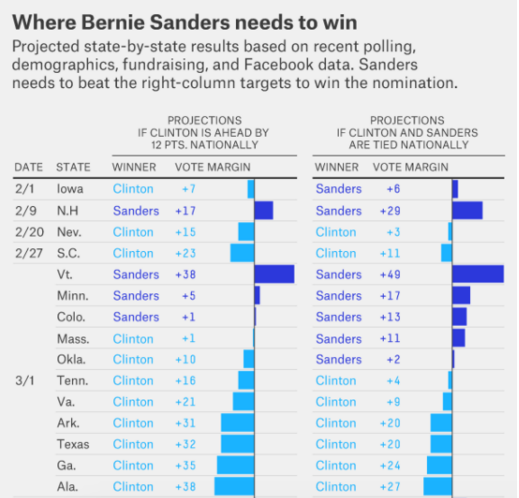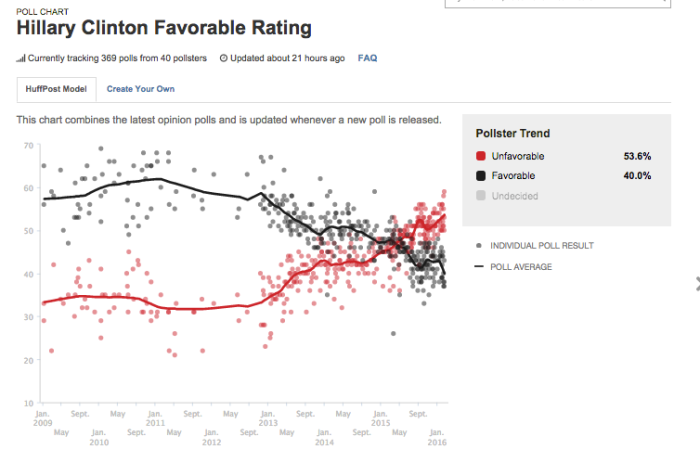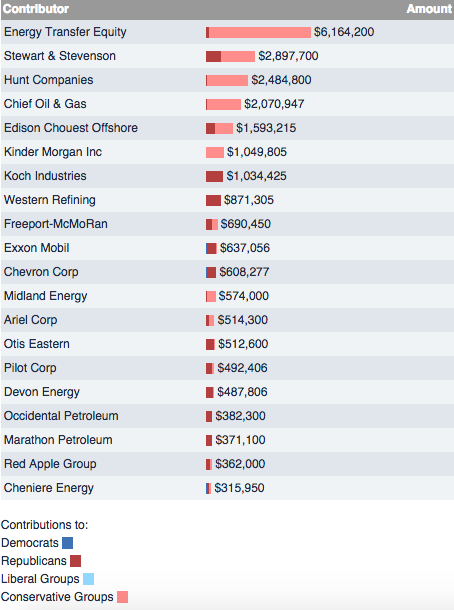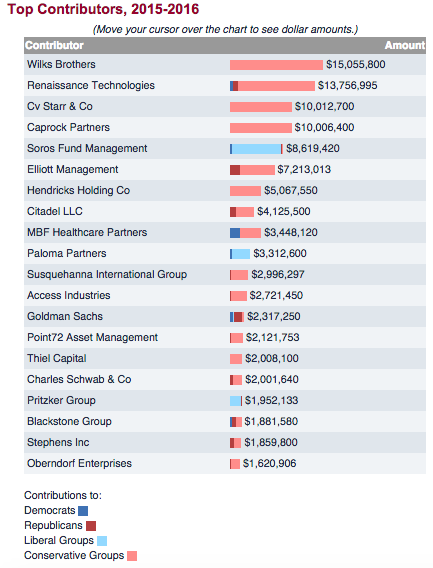Posts Tagged ‘Hillary Clinton’
Hold the Clinton coronation
On Super Tuesday Hillary Clinton won the most delegates by an approximate margin of 504-340. She has a handy lead in the race to become the Democratic nominee. Yet the overriding narrative of a huge night for Clinton, and commentary that the race is essentially over, is more complex than you might think.
Despite Clinton increasing her delegate lead, there’s a more nuanced argument to be made for Bernie Sanders’ continued viability than the hard numbers suggest.
After South Carolina, Clinton was expected to sweep the South by a significant margin. But there was also a lot of noise suggesting that the Bernie campaign had been terminally derailed by the loss and, with the exception of Vermont, Clinton would go on to win all or most of the other contests. There were tentative suggestions that Sanders might have a shot in Oklahoma, Minnesota, Colorado and Massachusetts – though the latter was strongly breaking for Clinton, adding fuel to this theory.
The reality of the night? Wins for Clinton in all the states she was expected to prevail in, and three big wins and a virtual tie for Sanders in the states he sort of had a chance to win. Sanders was effectively a few points in Massachusetts shy of his absolute best case scenario, while Clinton achieved marginally better than her minimum expectations, due to the size of her victories in the South.
Clinton remains the frontrunner, and it’s impossible to argue with the delegate count in her favour. But the repeated assertions that the Sanders’ campaign is “all but blocked,” is premature nonetheless.
FiveThirtyEight has charted hypothetical projections in every state, showing what the results might look like if both candidates were tied nationally. This acts as an indicator of how well Sanders would need to perform state-by-state in order to have a shot at securing the nomination. And interestingly, in all the states he won on Super Tuesday, he outperformed those numbers

Hillary Clinton’s victories in the South unsurprisingly represent the states in which Sanders falls well short of these projections. But most of these states have now come and gone, and he can look forward to a slew of contests in the North, West and Midwest with similar demographics to Colorado and Minnesota, states in which he won convincingly and beat the projections.
Sanders undoubtedly needs to close the gap in the national polls further, but that’s exactly what he’s been doing since the campaign began. His favourability ratings also continue to trend upwards, whereas Clinton’s have nowhere to go due to her already high name recognition.
Sanders will no doubt need to narrow the deficit in delegate rich states such as Michigan, Illinois, Ohio and Florida, and will probably need to pull off a big upset win or two somewhere along the line. He is going in hard on some of these states, especially Michigan.
This equates to the path being tricky, and it might become blocked in the future. But the media and Democratic establishment have been desperate to coronate Hillary Clinton at every turn. The glut of opinion pieces stating that the race is over seem disingenuous, and were likely more-or-less written in advance of Tuesday’s results.
Hillary Clinton has an electability problem
“Hillary Clinton is the most electable candidate” – that’s the line we’ve been hearing from the Democratic establishment and media for months. And while it’s true that Clinton is far more experienced at the top level than Bernie Sanders, experience is far from the only parameter of electability.
To misquote Marco Rubio – Let’s dispel the notion that Hillary Clinton is the most electable candidate.
In simple terms, Hillary Clinton polls more unfavourably than Bernie Sanders, with a 40% favourability rating, against 53.6% unfavourable. In contrast, Sanders is viewed favourably by a margin of 49-38.3%.

The numbers become even more concerning for Clinton when you look at her popularity amongst independents A Quinnipiac University poll shows a net favourability rating of -30, with 61% holding an unfavourable opinion. Sanders is viewed favourably with the same voter group by a 54-31% margin.
This really gets to the heart of the Clinton electability issue – independents don’t like her much and Republicans (8%) despise her. This spells bad news and could equate to a comfortable defeat against anyone other than Donald Trump, who boasts similarly negative favourability numbers. But even in a Clinton – Trump matchup, current polling suggests it will be close, whereas Sanders is winning by an average of six points.


One of the main problems for Clinton, besides trust and likeability problems, are the large numbers of disenfranchised voters. Sanders and Trump both appeal to different wings of this group, with very different messages, but Clinton embodies much of what many voters dislike, and plays badly with them as a result.
What Trump’s rise shows is that, among other things, people aren’t necessarily voting along typical party lines. Trump, after all, has got into spats with everyone from George W. Bush to the Pope, has previously expressed support for single payer healthcare, has defended Planned Parenthood and has in the past donated to Democratic candidates. Despite this his poll numbers and vote share remain consistently strong. The old rules seem to apply less and less in 2016.
In addition to his good numbers with independents, arguably the best and most obvious electability case for Sanders, he also has a surprisingly high favourability rating of 22% among Republicans. It therefore seems conceivable that he could carry the votes of some lower income Republicans and conservative leaning independents – people that are to the right on social issues but might be convinced to vote in their best economic interests. Even a small, but larger than average, percentage of these voters could help tip the balance in key swing states.
RealClearPolitics polling average show both Sanders and Clinton beating Trump. But while Sanders ties with Rubio and beats Cruz, Clinton loses to both.




Polls suggest that Hillary Clinton does remain the albeit narrowing favourite to secure the Democratic nomination. If she wins the primary she may win in November, but if you’re looking for reasons to vote for her, everything suggests that electability isn’t one of them.
Defining a single-issue
In the most recent Democratic debate, Hillary Clinton closed by saying: “I am not a single issue candidate and I do not believe that we live in a single issue country.”
It was an obvious attack line against Bernie Sanders, and it’s something their campaign has doubled down on in recent days.
It’s a smart move politically, as Vox’s Andrew Prokop points out, but that doesn’t mean it’s an accurate or honest statement. Regardless of whether or not Bernie Sanders is a single-issue candidate (spoiler alert, he isn’t) it’s inaccurate to suggest that Wall Street/income inequality/money in politics, which I’ll generously group together, is a single issue.
Looking specifically at the issue of campaign finance reform, Clinton’s argument assumes that money from special interests and donors is just one isolated issue. But is that really correct?
Take the oil and gas industries as a starting point, and consider for a moment the indifference, scepticism or pure denial by the majority of Republicans when it comes to climate change. A report from last year found the GOP were the only major conservative party in the world to reject the need to tackle climate change. And when you look at the donations from fossil fuel lobbyists you can perhaps see one of the reasons why.
 Retrieved from https://www.opensecrets.org/industries/indus.php?ind=e01
Retrieved from https://www.opensecrets.org/industries/indus.php?ind=e01
It’s fair to argue this could be a chicken and egg situation – oil and gas companies may donate to Republicans because of their stance on climate change as opposed to trying to buy or change their views. But even if that is the case, it’s logical to suggest that big donations from the industry will only serve to reaffirm and entrench their positions. Are Republican candidates really going to be willing to modernise their stance when it will scupper a reliable and significant donation source?
Another side of the same coin is of course the financial sector, including real estate and insurance, who give generously to both parties in exchange for a lax approach to market regulation and taxation. I’m sure it will surprise no one that they are by far the leading interest group by total donations.
 Retrieved from https://www.opensecrets.org/industries/indus.php?Ind=F
Retrieved from https://www.opensecrets.org/industries/indus.php?Ind=F
Despite Hillary Clinton’s protestations that she has never been influenced on a position or vote based on donations, most people don’t believe these industries are throwing money at politicians as part of a charitable or philanthropic gesture.
Money in politics is not a single-issue – it is a single subject that relates to every issue. There are many other examples – not limited to pharmaceutical lobbying, that has stood in the way of genuine healthcare reform, the NRA obstructing gun control, despite an overwhelming majority of the people being in favour, and private prisons that fight to maintain the status quo of mass incarceration.
You’re likely to here the single-issue line more and more from the Clinton campaign, especially heading into South Carolina and Super Tuesday. But calling a wide-ranging problem, that remains one of the biggest obstacles to a fairer political system, a single issue falls far, far wide of the mark.